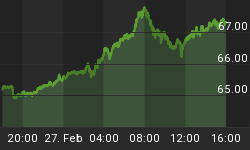In 2014, China’s ecommerce giant, Alibaba, made history after listing on the New York Stock Exchange (NYSE) for a record $25 billion, the largest public offering in history. Soon after, BABA stock managed to overcome initial malaise and zoomed off, nearly doubling in 2017. But Alibaba was not done …
A couple of months ago, the company was able to shed it ignominious title as a haven of counterfeit goods when advertising research agency Brandz ranked Alibaba as the 9th most valuable global brand.
Many investors thought that was as good as it got for the company, even as political tensions between China and the U.S. kept growing. They were wrong.
Alibaba is about to rewrite history again--this time by coming from behind to successfully challenge the lead by U.S. cloud titans Amazon, Microsoft and IBM.
According to Q1 2018 cloud-computing data by the industry’s leading navel-gazer, Synergy Research, Alibaba has surpassed IBM to become the fourth-largest cloud services vendor behind only Amazon, Microsoft and Google.
Amazon in Alibaba’s Crosshairs
Alibaba Cloud overtaking IBM Cloud Services is a truly remarkable feat because IBM is one of the largest tech companies around, and it has a very robust history of innovation.
For Alibaba, however, ecommerce is its main forté with its numerous tech offerings mainly being used to support the online shopping ecosystem.
Amazon, another ecommerce giant, probably owes its huge cloud lead to a first-mover advantage: setting base in 2006 when everybody else seemed clueless about whether cloud computing was a secular trend or merely a passing fad.
Related: How to Make Money in Brazil’s Bear Market
But maybe IBM and these cloud titans ought to have listened when, three years ago, Alibaba decided to start taking its cloud business seriously. In this cut-throat industry, having a first-mover advantage really counts.
If Alibaba had managed to make its second-mover status count, it would probably have overtaken even Microsoft Azure, which launched a year later.
Many people probably came to learn about Alibaba Cloud in 2014 when it suffered a 14-hour long DDoS attack--one of the worst in cloud history. Yet the service had launched five years earlier, but mainly kept a low profile with no large clients on its roster.
But back to Alibaba getting serious about the cloud…
When Alibaba Cloud’s president, Simon Hu, decided to stop sleeping on the job, he made a really bold prediction:
“Our goal is to overtake Amazon in four years, whether that’s in customers, technology, or worldwide scale.”
Alibaba started by making its cloud widely available outside China.
Consequently, the business started growing at a much more robust clip—138 percent, 121 percent, and 101 percent in FY 2015, FY 2016 and FY 2017, respectively. That’s a torrid rate that only Microsoft’s Azure can match. Alibaba is now China’s leading IaaS vendor with a 47.6-percent share of the market.
Toppling AWS?
One thing we can be sure about though is that Alibaba’s Simon Hu won’t be able to meet his ambitious goal to knock AWS off its lofty pedestal in four years.
Three years into the plan, Alibaba’s cloud revenue hit $2.1 billion for FY 2017 ended March 31, 2018, and is now the third-largest revenue contributor for the company.
A lot of that growth has been fueled by a huge increase in the number of paying customers, a metric that doubled in two years to just over a million last quarter. Not bad at all, but nowhere near AWS’ $20.4-billion run rate exiting last quarter.
But just like AWS now contributes about a third of Amazon’s valuation, you can expect BABA stock to follow a similar trajectory if Alibaba’s cloud business continues growing like a weed.
By Alex Kimani for Safehaven.com
More Top Reads From Safehaven.com:
















